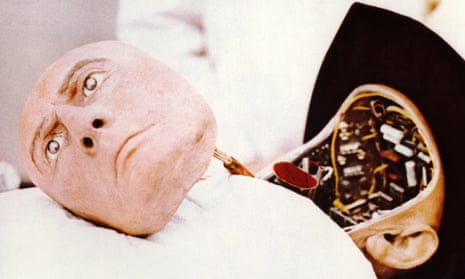What is consciousness? At first blush this question appears to be rather simple, but with further investigation, it quickly becomes much more complex. Consciousness is the most intimate of mental experiences, and yet the hardest to explain. It is the faculty that allows you to read this sentence, to remember yesterday’s events, to enjoy music and art, and to daydream about your plans for tomorrow. It provides your whole experience of the world and yet is mysteriously altered, or absent altogether, when you fall asleep at night.
For centuries, writers have argued about both the nature and purpose of consciousness, yet several rather basic questions remain unsettled. For example: at what stage does a foetus or newborn become conscious and able to understand the world that we, as adults, inhabit? Likewise, how does animal consciousness differ from ours and why do animals not respond as we do to music and art? What would it take to construct a machine that was conscious? And finally, could conditions like coma and the vegetative state harbour conscious minds within unresponsive bodies? These are some of the thorny questions I asked in my new book Into the Grey Zone, through the lens of a neuroscientist working at the border between life and death.
Over the last 25 years, that 3lb lump of grey and white matter in our heads generates every experience we have ever had has come into much sharper focus, largely through incredible developments in brain science, and through the works of many great writers and thinkers. Here are 10 of my favourite books on the subject.
1. Consciousness Explained by Daniel Dennett
Probably the best introduction to the central ideas and concepts that have preoccupied all great consciousness thinkers throughout history. It may be a little challenging for a general audience, but Dennett masterfully combines ancient philosophical concepts with more familiar modern analogies (such as “the brain as a computer”) in a book that continues to influence contemporary thought on the human condition more than a quarter of a century after its publication.
2. Other Minds: The Octopus, the Sea and the Deep Origins of Consciousness by Peter Godfrey-Smith
Written by a philosopher, yet borrowing heavily from evolutionary biology, this unique and fascinating book – which was shortlisted for this year’s Royal Society science book prize – asks us to rethink intelligence and how we conceptualise “other minds” – notably, that of the octopus. While the octopus evolved independently of humans, it has a similar number of neurons and exhibits highly intelligent patterns of behaviour that allow it to do things like opening screwtop jars from the inside. Yet unlike humans, more than half of an octopus’s neurons are in its arms, suggesting that in searching for intelligent life, we need look beyond those whose form resembles our own.
3. The Diving Bell and the Butterfly by Jean-Dominique Bauby
Not strictly a book about consciousness, I include Bauby’s memoir because it demonstrates the tremendous power of mind over body and is so beautifully written – everybody should read it at least once. A massive stroke left the author permanently paralysed except for the ability to blink his left eye. With the help of an assistant and a writing board, Bauby wrote the book with 200,000 blinks. Bauby recounts: “My mind takes flight like a butterfly. There is so much to do … You can visit the woman you love, slide down beside her and stroke her still-sleeping face. You can build castles in Spain, steal the Golden Fleece, discover Atlantis, realise your childhood dreams and adult ambitions.” This is Bauby’s “butterfly”: the mind unbound. But Bauby – who died in 1997 – was also locked inside the “diving bell”, a sinking iron chamber from which there is no escape.
4. The Centre Cannot Hold: My Journey Through Madness by Elyn R Saks
This brutally honest memoir provides a rather special perspective on the nature of “other minds”, in this case that of a successful lawyer living with schizophrenia. Saks has struggled with schizophrenia for most of her life, from her early teenage years when she heard voices urging her to harm herself and others to the full-blown psychotic episodes and suicidal fantasies that she continued to battle as a law professor. Schizophrenia certainly changes one’s conscious experience of the world and this is a fascinating and moving account of what it’s like to live in that alternate universe.
5. The Origin of Consciousness in the Breakdown of the Bicameral Mind by Julian Jaynes
Jaynes’s daring and brilliant theory about the evolution of human consciousness is that ancient people could not “think” as we do today and were therefore “unconscious”, going about their business as automatons responding to voices in their heads, which they assumed were those of gods. Consciousness as we experience it only began to emerge around 3,000 years ago, when a series of natural disasters and the widespread use of writing forced humans to change. You may not be convinced by all of his arguments, but you’ll like this book a lot. “Either a work of unparalleled genius, or completely out-to-lunch loopy,” wrote one reviewer. That just about sums it up for me too. Jaynes’s bicameral mind heavily influenced the writers of HBO’s update of Westworld and is namechecked several times by lead actor Anthony Hopkins. Respect!

6. The Astonishing Hypothesis: The Scientific Search for the Soul by Francis Crick
Nobel laureate Francis Crick was, of course, one of the discoverers of the structure of DNA and was not the first great mind to be distracted by solving the enigma of consciousness in his later years. Perhaps a little too focused on the scientific details for a novice in this area, the book nevertheless deserves a place here because it was one of the first to argue that consciousness is not solely a matter for philosophical introspection, but a subject worthy of serious neuroscientific investigation.
7. Phi: A Voyage from the Brain to the Soul by Giulio Tononi
Tononi considers a historically impossible scenario in which Francis Crick, Charles Darwin and Alan Turing each take Galileo on separate trips to discuss different perspectives on consciousness. Crick discusses consciousness and the brain, Darwin the evolution of consciousness and Turing the integration of information. It is beautifully illustrated and blends neuroscience, art and the imagination in a truly unique way.
8. Making Up the Mind: How the Brain Creates Our Mental World by Chris Frith
Illusions, rubber hands, mirror neurons, self-tickling … what more could you want in a book that explains how your brain gives rise to your whole sense of being something in the world? This is a book about how our brains build models based on prediction that generate our experience of the physical world around us. Highly accessible, witty and erudite, this book is the best of its kind.
9. Phantoms in the Brain: Probing the Mysteries of the Human Mind by VS Ramachandran and Sandra Blakeslee
A series of neurological case histories, delivered Oliver Sacks–style, involving phantom limbs, blindsight and other wonders of modern neuroscience. This is not especially a book about consciousness, but many of the patients described have learned to live with profound alterations in the way their brains understand the world. The underlying sentiment is profoundly neuroscientific; that is, that the brain gives rise to all our subjective experiences, however bizarre they may be.
10. The Head Trip: Adventures on the Wheel of Consciousness by Jeff Warren
Finally, if you want to answer some basic questions about your own brain, follow Canadian journalist Warren’s lead and try to alter your own state of consciousness through lucid dreaming, meditation and various other approaches that don’t require drugs. Although the content of the book is more empirical than scientific, a mix of interviews, personal anecdotes and self-deprecating humour provides a thoroughly entertaining take on how to explore consciousness in the comfort of your own home.
- Into the Grey Zone: A Neuroscientist Explores the Border Between Life and Death by Adrian Owen is published by Faber & Faber priced £16.99. It is available from the Guardian Bookshop for £11.99 including free UK p&p.

Comments (…)
Sign in or create your Guardian account to join the discussion